Remembering Jack Curtis, the 'patron saint' who shaped the Phoenix rock 'n' roll scene
- Oops!Something went wrong.Please try again later.
Jack Curtis was a major player on the Phoenix music scene that came of age with rock ‘n’ roll in the ’50s and ‘60s.
A concert impresario whose teen club gave Vince Furnier a shot at local hero status with the Spiders years before he changed his name to Alice Cooper, Curtis had his own TV shows and a record label that released the Spiders’ first recordings.
"Jack Curtis will always be our patron saint," Cooper says. "He saw the potential of the Spiders, hired us and when he saw that we packed the place every weekend, we became the house band at the VIP."
Curtis also booked some of the earliest national acts at the Arizona State Fairgrounds and developed Summer Sunday, an event with rides and local entertainment that was pulling in 75,000 people a year at Phoenix Civic Plaza by the time then-Gov. Rose Mofford proclaimed Jack Curtis Day in 1988, citing his “very successful career in the field of arts and entertainment.”
Curtis died on Wednesday, Feb. 22, 2023. He was 88.
On Sunday, July 16, he’ll be inducted to the Arizona Music & Entertainment Hall of Fame.
'The first guy that believed in us': How Jack Curtis gave Alice Cooper their first big break
Alice Cooper bassist Dennis Dunaway says Jack Curtis was 'the man'
Spiders bassist Dennis Dunaway, a founding member of the Alice Cooper group, still thinks of Curtis as “the man” – a legend among local teens who gave a lot of homegrown acts their start in Phoenix.
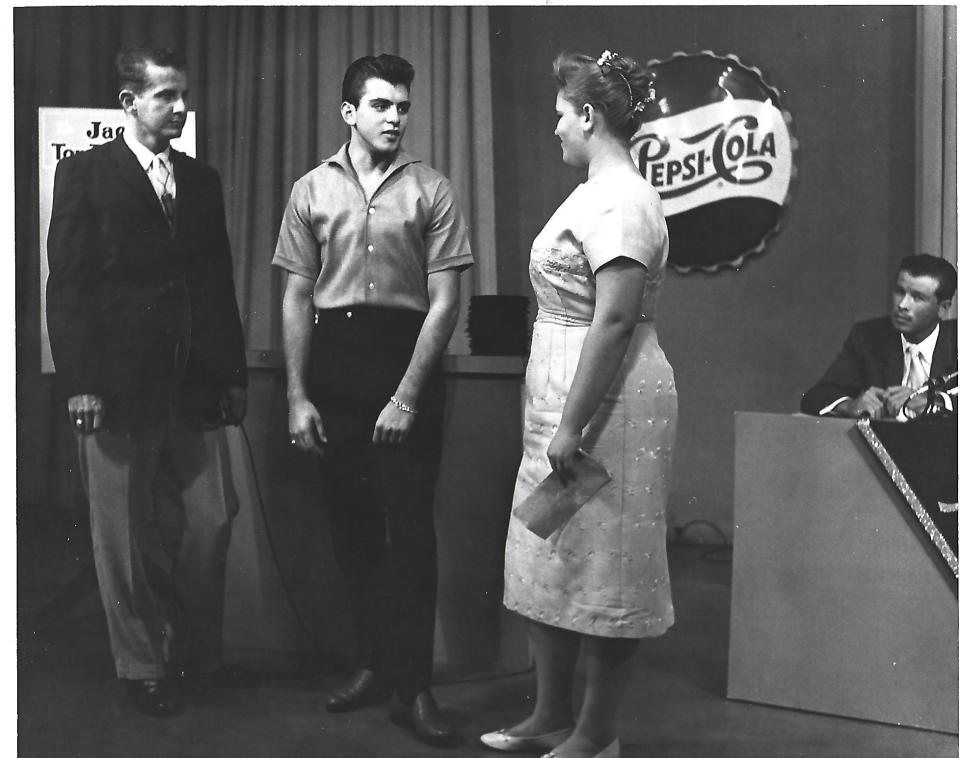
“He was like Dick Clark to me in that he was always tuned into figuring out the next flavor of gum that would be popular with teens,” he says. “He had a wholesome format – no drinking, you know. But he brought in the bands. And he was great for that.”
Dunaway recalls a Curtis Back to School Bash at the fairgrounds where the Spiders did their best to rise to the occasion.
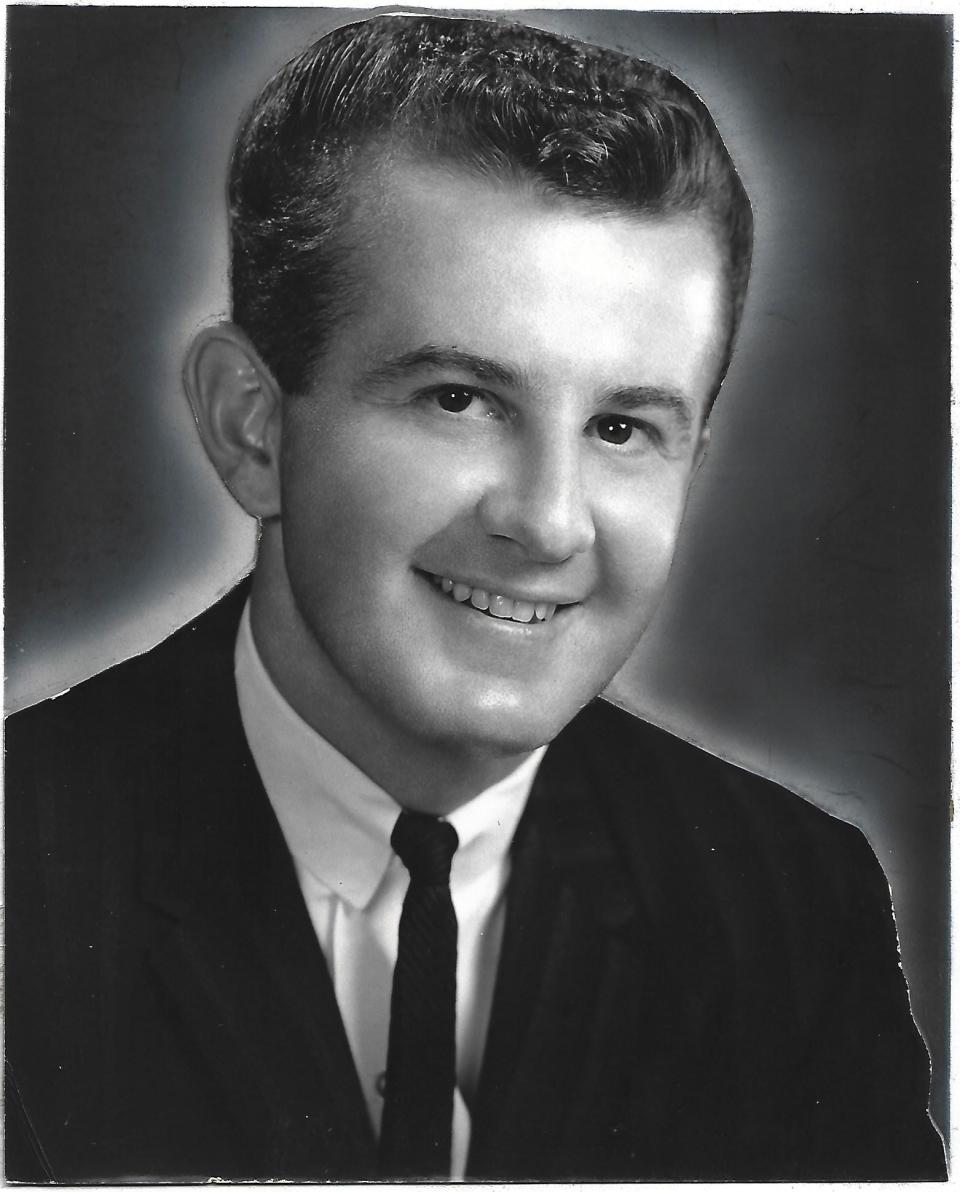
“Oh, man, we were feeling our oats,” he says.
“This was big time to us. And when we walked offstage, Jack was standing there beaming. He said, 'I don't know what it is, but whatever it is, you guys got it.' And we thought, 'Oh my god, Jack Curtis said we've got it.' All those Phoenix musicians of that era, they owed Jack a lot."
Cooper says, "Our first break was Jack Curtis and I think if you ask the original band, the surviving members, they always have fond memories of Jack."
When School was In: What was Alice Cooper like in high school? Friends and bandmates share their stories
'Everybody knew who Jack Curtis was'
Phil Motta was at Brophy College Preparatory when he started working with Curtis, playing his teen clubs and enjoying local and regional hits on Mascot Records as the singing drummer at the helm of the Valley’s most popular group of the mid-‘60s, P-Nut Butter.
“He was a big deal,” Motta says. “Anybody who grew up in Phoenix in the ‘60s and early ‘70s was influenced by Jack. He was the biggest thing going in rock music.”
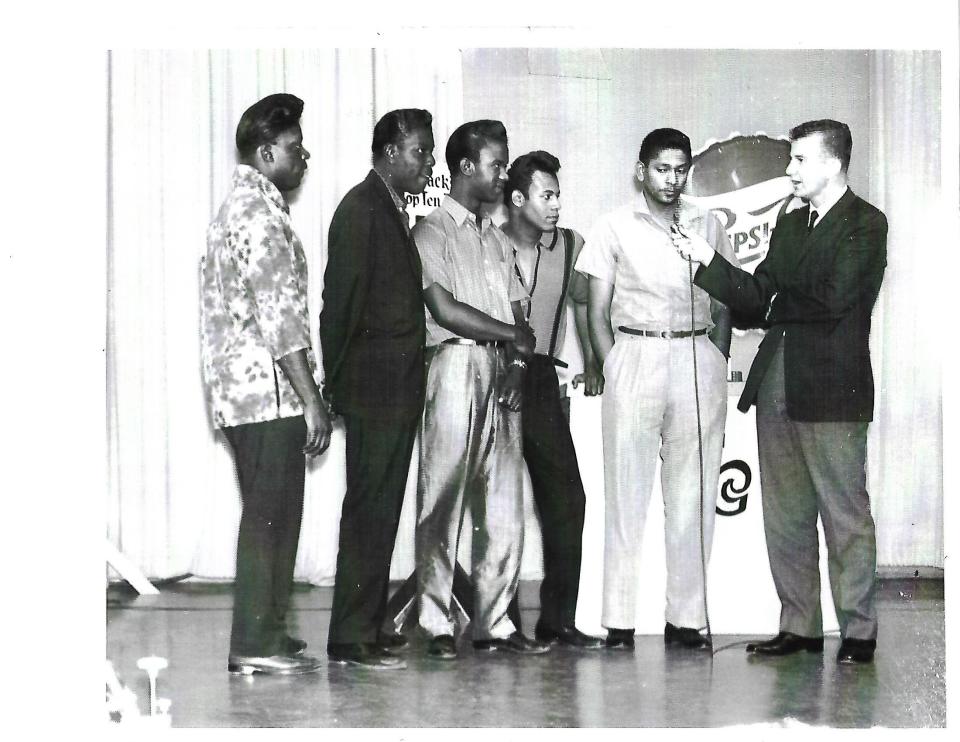
Dwayne Witten drummed in another of Curtis’ go-to bands, the George Washington Bridge. They opened for national acts at his venues, from the VIP Club to Beau Brummel, put out records on his label and played gigs he’d line up all over the state.
“Everybody knew who Jack Curtis was,” Witten recalls.
“If a group was able to play the VIP or somehow get connected with Jack, that opened a lot of doors, and if you recorded on his label, you would be able to charge more money for the gig. That kind of stuff meant a lot to local groups. I mean, it meant everything.”
'He had the vision, he was willing to invest and he believed in it.'
John Dixon, an Arizona music historian, sees Mascot Records as the most enduring impact Curtis had on local music culture.
“At the end of the day, Jack spent a lot of time, money and effort promoting local music with very little financial return, making trips to Los Angeles pitching Arizona music here and there,” he says.
“And he did it for such a long time. That's what Jack brought to the table. He had the vision, he was willing to invest and he believed in it. It was a labor of love.”
Jack Curtis 'had his fingers in a lot of different pies'
Jack Curtis was the youngest of three children born in Chariton, Iowa, to Anna and Willard Curtis.
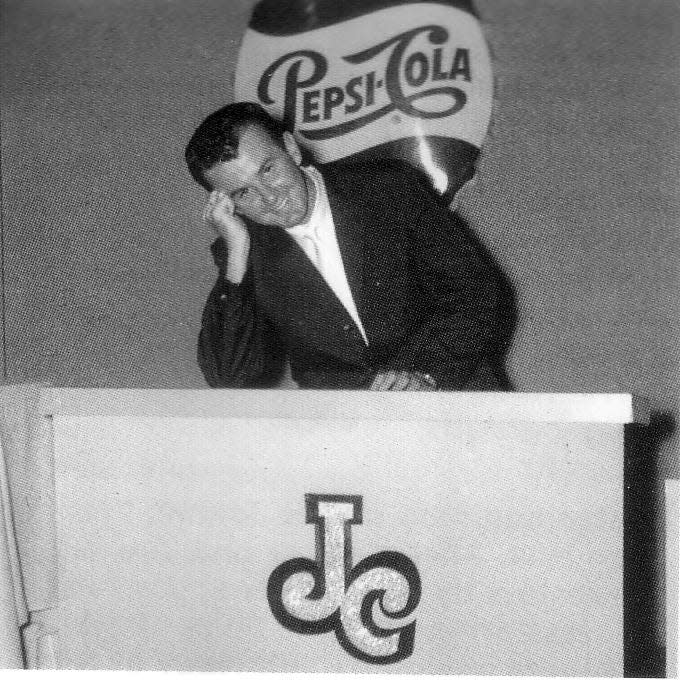
In 1955, the Curtis family moved to Phoenix, where Jack’s brother, Ray, had launched a promising career in radio, becoming one of the Valley’s more prominent DJs in the late ‘50s and ‘60s.
Taking a job at The Arizona Republic, Jack Curtis worked his way up from delivering advertising proofs to clients on a scooter to being given his own entertainment column, which ran from 1957 to 1962. He interviewed Debbie Reynolds, Bobby Darin and other celebrities while also covering the local scene.
He even wrote about the shows he was promoting and the records on his label.
These were different times.
As Witten says, “He had his fingers in a lot of different pies. And he used all those avenues to promote the different things that he was doing.”
Producing songs, promoting concerts, hosting TV shows: He did it all
In 1958, Curtis served as a judge for a talent show at the Riverside Ballroom, inviting a singer he met there, Wyatt Large, into the studio to record one of his songs. It was the first of many records Curtis would produce for local artists.
That same year, he started his own weekly concert series at the Fox Theatre in downtown Phoenix, where a young Duane Eddy was among the featured artists.
By 1960, he was hosting “The Jack Curtis Show” on Channel 3, bringing in local and national acts. He had a second show on Channel 3 called “Peanut Bandstand” aimed at preteens.
Rebel 'Rouser: How an Arizona legend paved his way to the Rock and Roll Hall of Fame with a junkyard find
Launching Mascot Records and the VIP Club in the early '60s
Curtis opened a number of teen clubs in the ‘60s, starting with Cudia City on the soundstage of a Western film set at Camelback Road and 40th Street in Phoenix.
In 1961, he moved his teen shows to Stage 7 in a building owned and operated by the Jaycees near the corner of Seventh Street and Indian School Road, not far from where he’d been producing records at Floyd Ramsey’s Audio Recorders.
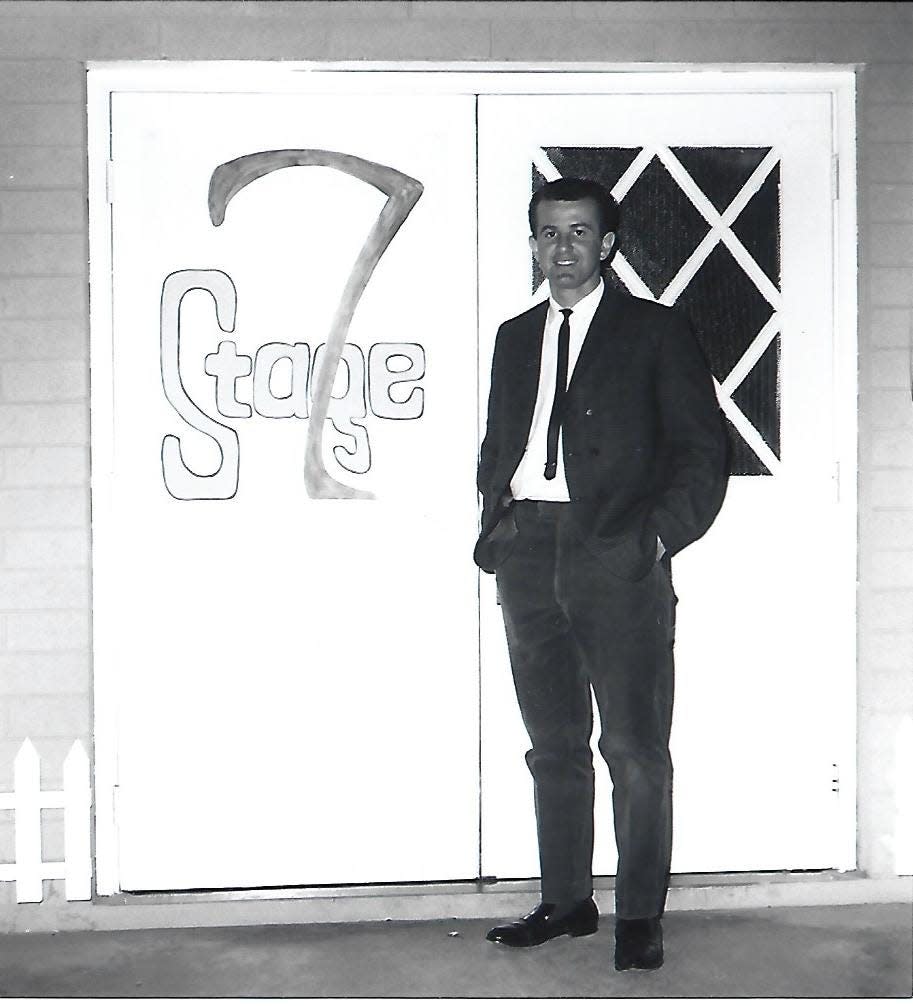
That same year, he launched Mascot Records with “Once It Was Mine,” a 45 by Judy Lunn, a 16-year-old Central High student whose mother, Maxine, was the ticket seller at Stage 7, which would go on to become the VIP Club.
By 1967, Mascot had released a wide variety of 45s, from Frank Fafara and Roosevelt Nettles to P-Nut Butter, Jim Boyd, Motion, the George Washington Bridge, Mike Condello (who wrote the music for and appeared on “The Wallace & Ladmo Show”) and, of course, the Spiders.
Rock's first side chick? Why Duane Eddy session guitarist Corki Casey was so much more than that
'I don't think he was a Phil Spector kind of producer'
The records were produced by Curtis but, as Dixon says, he only did so much producing.
“Jack was kind of a mild guy,” Dixon says. “I don't think he was a Phil Spector kind of producer character. He just kind of let things happen. I think a lot of the groups just recorded the way they wanted.”
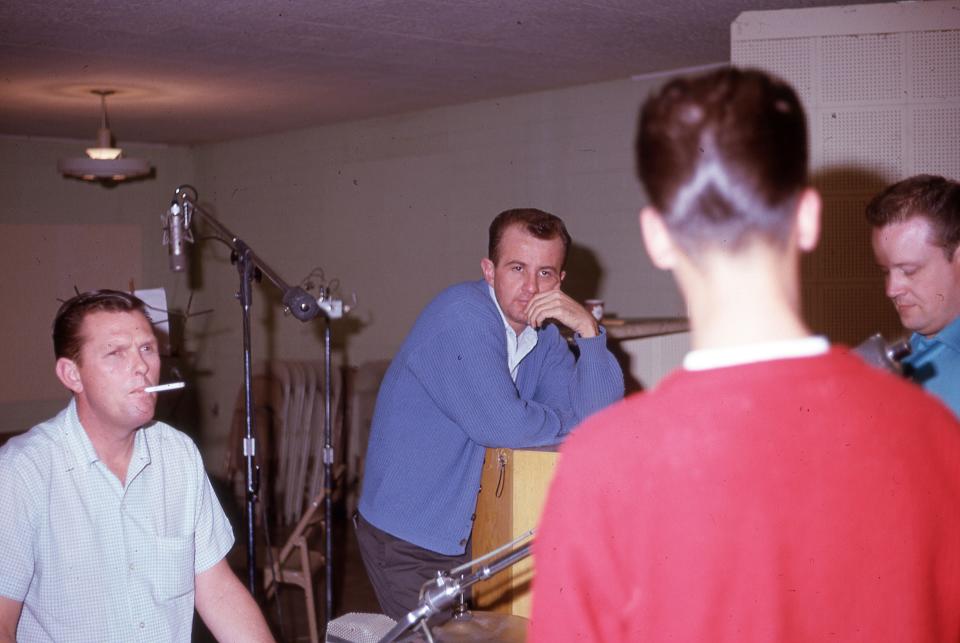
That’s how P-Nut Butter did it.
“We generally produced ourselves,” Motta says. “But Jack was there. He was sort of the executive producer.”
None of those Mascot releases were national hits, but Curtis did manage a number of local and regional hits, from Roosevelt Nettles to P-Nut Butter, the label’s two best-selling artists.
“We never released a P-Nut Butter album,” Motta says. “But we recorded 30, 40 songs and Jack would bring material to us. He took groups under his wing and helped develop them.”
He also did his best to get their music in the hands of bigger labels that could give their songs a more effective push.
Two P-Nut Butter sides were re-released on Capitol subsidiary Tower Records, while Nettles had two singles licensed to Chess/Checker Records.
How Jack Curtis became 'the man who discovered Alice Cooper'
Mascot’s biggest claim to fame is the 45 Curtis produced for the Spiders – a cover of “Why Don’t You Love Me” by the Blackwells from Liverpool backed with a cover of Marvin Gaye’s “Hitch Hike.”
It was the first time the Spiders had been in the studio, their ranks by then including three musicians who would one day be inducted to the Rock and Roll Hall of Fame as Alice Cooper (Furnier, Dunaway and guitarist Glen Buxton).

There’s a reason Curtis is referred to in some circles as “the man who discovered Alice Cooper.”
“We owe a lot to Jack Curtis,” Dunaway says.
“He's the guy that gave us our start, the first guy that believed in us, the first guy that made us believe that we could make a living at it. If he hadn't done that, there would have never been an Alice Cooper because we wouldn't have survived.”
As Dixon sees it, “Jack's the one who told them, 'Yeah, come down and get on my stage. You want to put that goofy spider web out of rope and do that goofy thing on stage and dress in black? Go right ahead.’ It wasn't like, ‘Don't do that (expletive), man. I want suits and ties.’”
When Jack Curtis ruled the teen club scene in Phoenix with the VIP
A lot of the artists on Mascot were featured performers at Curtis’ teen clubs.
Stage 7 house bands included the Stage 7 Combo with Mike Condello, and Ritchie Hart & The Hartbeats, whose leader had gone back to using his real name, Charlie Gearheart, by the time he started Goose Creek Symphony.
In addition to the Spiders, house bands at the VIP Club (also known as the VIP Lounge) included the Precious Few, the Vibratos and P-Nut Butter.
“The VIP had a sign on the wall that said it held 900,” Dunaway says. “But there were nights when we would get 1,000 kids in there, and it would be just jam packed.”
By 1967, Curtis had a second VIP in Tucson.
He also brought some of the earliest national rock acts to Veterans Coliseum and the fairgrounds, including the Beach Boys, the Turtles and Sonny & Cher, and brought national acts through both VIP Clubs, from the Hollies to the Yardbirds, often giving the opening slot to a band from his stable of local performers.
The Spiders opened for the Byrds at Veterans Coliseum and both VIP clubs.
In 1967, Curtis closed the VIP because, as he told the Republic at the time, it was too small and the parking lot could no longer handle the crowds.
How one night at Beau Brummel was the end for Curtis
That same year, he opened Beau Brummel (often called Beau Brummel’s) at 55th and Van Buren streets, which offered a much larger dance floor, a game room and a larger parking lot.
Buffalo Springfield and the Left Banke played the club in the short time it was open before the incident that cost Curtis his standing with the teens on whom the club’s success depended.
As Witten, who opened for Buffalo Springfield with the George Washington Bridge, tells the story, the trouble started when a group called American Standard rolled into Phoenix early for a gig as the support act on a coliseum concert and hit Beau Brummel to check out the scene.
“They were just a really rough-looking set of guys,” Witten says.
“I mean, everybody had long hair then. But these guys looked like bikers with chains and the whole thing. So they went to Beau Brummel and Jack wouldn't let them in because of their appearance. He thought they were a biker gang. And he didn't want them in his club.”
The story spread like wildfire, the American Standard dubbing the club the Beau Bummer.
“Literally overnight, Jack became a stodgy old man who was not with it anymore and had lost touch,” Witten says. “So everybody just stopped going to the club.”
He tried to save the venue, changing the name from Beau Brummel to Ondiene then to Alice Cooper’s.
When kids started calling his club the Beau Bummer, he just wanted out
“But by then, he had become so disillusioned by that incident, and by the psychedelia and heavy metal and hard rock, he just wanted out,” Witten says.
The world had changed a lot since Curtis brought the Spiders in to play the VIP.
“Other concert promoters had started coming in and doing things with the coliseum,” Witten says. “Other clubs were popular by then. JD’s, Mr. Lucky's and all kinds of different options. The whole scene was so much different than it was when Jack first started all this stuff. So he just walked away.”
In 1971, he took a job with Phoenix.
Two years later, he started a 15-year run as the marketing manager for Phoenix Civic Plaza, where he developed and promoted Summer Sunday from 1975 to 1988.
In 1989, a year after Rose Mofford proclaimed Jack Curtis Day, he parted ways with the city and launched a marketing firm, Jack Curtis and Associates, whose clients included Phoenix Civic Plaza and Cirque de Soleil.
In the early ‘90s, he closed the firm and went to work for Greenband Enterprises, promoting boat, home, sports and RV shows, before retiring in the early 2000s.
When the drummer for one of his teen bands reignited Mascot Records
In 2011, Witten purchased Mascot.
“For a long time, we lived in the same neighborhood,” Witten says. “So we'd always run into each other at the grocery store and around 2009 or '10, I started asking Jack, 'Are you ever gonna do anything with Mascot Records?’”
Curtis suggested Witten buy the label, which ended its initial run in 1968 and was briefly revived for a single by Pango in 1973.
In 2013, with Dixon’s help, Witten released “The Mascot Records/Jack Curtis Story 1958-1973,” a 32-song compilation on CD, including previously unreleased material.
“There were probably over 60 or 65 – maybe 70 – tracks that Jack had in the can that he’d produced at Mascot,” Witten says. “He had released a series of 45s but had never released an LP.”
Curtis didn't have a CD player at the time.
“But he wanted to hear the CD, so I bought him a little portable CD player for his kitchen,” Witten says. “I also put together a CD of the 11 songs he wrote that were recorded by different artists. He loved listening to that.”
By that point, Dixon had released a reproduction of the Spiders’ debut 45 and a “Battle of the Bands” CD compiling tracks by P-Nut Butter and the Vibratos.
It was Dixon who introduced Witten to David Hilker and Jeff Freundlich at Fervor Records, a Phoenix label whose specialty is film and TV soundtrack placement.
The Fervor team jumped at the opportunity to get involved with preserving the legacy of a local legend Hilker sees as "a true maverick of the Phoenix music scene," placing more than 60 recordings produced by Curtis in films and TV shows, including “Homeland,” “NCIS,” “This Is Us” and “Bates Motel.”
Witten takes great pride in noting that “there were even two Mascot sides, one of which Jack wrote, in the Oscar-winning movie ‘Green Book.’”
The time Jack Curtis said no to Bruce Springsteen
Curtis loved to reminisce about the old days, Witten says.
“But he was very humble. And he had a great, great, great sense of humor, a very dry and very caustic sense of humor.”
He even saw the humor in the times he may have made the wrong decision.
“He loved telling the story about Bruce Springsteen's manager calling,” Witten says.
“This was when nobody knew him outside New Jersey. He hadn't played the Celebrity Theatre yet. But the manager called Jack and wanted to know if he was interested in promoting Bruce Springsteen for $300. And Jack turned him down.”
He did take great pride in what happened to the VIP Club house band that went on to rule the world as Alice Cooper.
“He ran into Vince one time on the Biltmore golf course and was very appreciative of the fact that Vince – or Alice – recognized him,” Witten says.
“They had a great conversation. Vince was very warm and appreciative of everything that Jack had done for them. So he was very proud of that. But at the same time, he wouldn't go out of his way to pat himself on the back in public or fluff up his own feathers, so to speak.”
Curtis as 'one of the most decent human beings I have ever known'
Curtis never married or had children.
“But he loved the kids that came to his clubs and he would call them 'my kids,’” Witten says. “There were a lot of people who came to the club who considered Jack almost a surrogate father.”
To Motta, Curtis was “a shirt and tie guy” with conventional Midwestern values and “one of the most decent human beings I have ever known.”
This Hall of Fame induction would’ve meant the world to Curtis had he lived to see it.
“It’s bittersweet,” Witten says.
“I’m obviously extremely happy this is happening. But I’m also very sad that he can’t be around to receive the honor himself. It should have happened years and years ago. But it’s a great honor.”
Reach the reporter at ed.masley@arizonarepublic.com or 602-444-4495. Follow him on Twitter @EdMasley.
Support local journalism. Subscribe to azcentral.com today.
This article originally appeared on Arizona Republic: Jack Curtis shaped the Phoenix rock scene and discovered Alice Cooper

